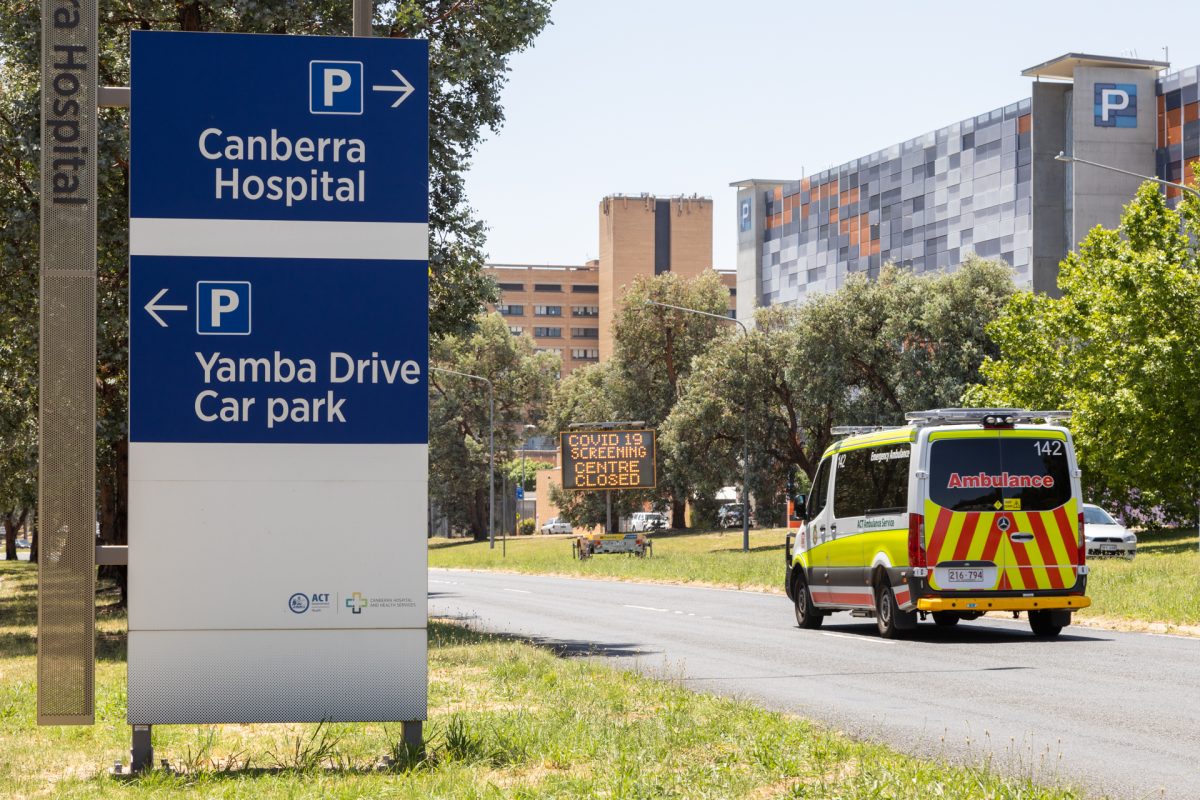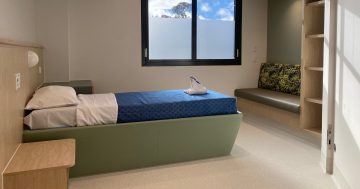
A Canberra mum has spoken out about what she believes are significant gaps in the eating disorder treatment for children. Photo: Michelle Kroll.
CONTENT WARNING: This article discusses eating disorders.
A Canberra family is staring down the grim barrel of having to separate to get their 12-year-old daughter the care she needs.
Sarah, who is battling anorexia, has now been admitted to a high-care paediatric ward at Canberra Hospital twice.
She was sent home on Thursday (24 November) after having been physically stabilised and declared medically fit to go home.
But her mother Alison said she was only eating two snacks a day and the family had been warned there were likely years of hospital admissions ahead.
If necessary, next time her father will relocate to Melbourne with Sarah while her mother and sibling stay in Canberra.
The thought of separating the family is breaking Alison’s heart.
But they have found Melbourne hospitals offer not only structured programs to tackle eating disorders but group therapy and creative programs with mental health workers on the same ward.
Alison claims that during the three-and-a-half-months of her daughter’s admission to Canberra Hospital, there was a distinct lack of structured psychological treatment – something necessary for eating disorder treatment.
She also felt as though her daughter, who is autistic, was being put in the too-hard basket.
“Without me calling to ask if she can see a psychiatrist it just doesn’t seem to be happening,” she explained.
“And then when they do get her appointments they just tell me she doesn’t engage so there’s no point. Where’s the professionalism in that? Do we just give up?
“If they find she’s too hard they need to transfer her to another hospital.”
Sarah is high-functioning and highly intelligent – something that her mother says means she needs to connect with someone.
“These kids need tools. They need creative fun. They need intensive one-on-one sessions. They need group therapy. They need to know they matter. If they can get these tools in their first admission maybe there won’t be readmissions,” Alison wrote in one letter to Mental Health Minister Emma Davidson’s office.
Alison also claimed simple things like televisions in the ward not working and there being no continuity of staff care began to stress her, and she felt her concerns as a parent weren’t being listened to.
Alison – and another mother – also raised concerns about a practice whereby their child’s nasogestric feeding tubes were left out for too long.
These tubes are used when a person is not eating via the mouth.
Alison said Sarah lost 3.6 kilograms in six days in which she did not eat at all, taking her weight down to 33 kilograms – almost back to where she was when she was admitted.
She said this made her and Sarah’s father lose faith in the medical team.
“As parents, we trusted the medical team … but every day Sarah was more and more disappointed in herself that she couldn’t eat,” Alison said.
“She doesn’t know why she can’t eat anymore and why she has this mental block.”
Now at home, Sarah is eating only two snacks a day.
Alison’s own mental health has suffered, too.
She’s spent months writing to Health Minister Rachel Stephen-Smith and Mental Health Minister Emma Davidson and the hospital, urging change.
Now that Sarah is out, she will be seeing a private psychologist.
Her parents don’t want her going back to the eating disorder outpatient treatment program as she’s already tried it once and the family behaviour therapy it offered was “too restrictive” for children on the spectrum, Alison said.
A spokesperson for Canberra Health Services explained in some detail the process of eating disorder treatment at the hospital.
They said the purpose of a hospital admission is for medical and psychological stabilisation, containment of eating disorder behaviours like vomiting and to establish a trajectory of weight gain.
Canberra Health Services said it offered several supports to the family of the young person.
“Young people admitted to the adolescent ward who need refeeding are in a metabolically unstable condition. Their poor nutrition means that they have a limited capacity to engage in psychological therapies,” they said.
“The focus on the ward is to provide psychoeducation to young people and their families/carers about eating disorders, as well as supportive therapeutic interventions. Supportive psychotherapy is also offered to parents and carers, acknowledging the stress that families face when a young person has an eating disorder. These therapeutic interventions are offered by the acute allied health team, with ongoing support provided by nursing staff.”
But that’s not good enough for Alison, who said it’s not fair to send the children home with no additional supports in place.
She said she’s disappointed and frustrated and also doesn’t feel like she got enough support for herself.
Region has decided not to name nor identify the family.
If you are concerned about an eating disorder or body image issues and need support for yourself or someone you care about, the Butterfly Foundation’s support line is available on 1800 33 4673 (1800 ED HOPE).
If you have a story to share, contact ltwyford@region.com.au.




















